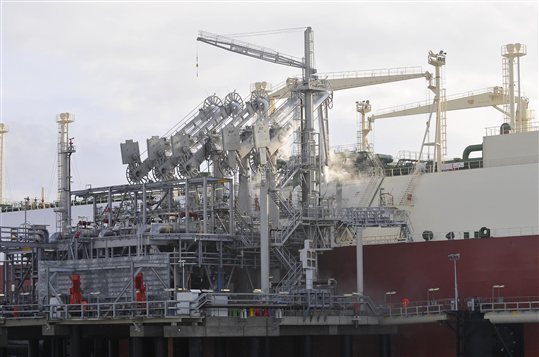
The UK saw its LNG imports fall by 47% last year, new research has found.
According to the Institute for Energy Economics and Financial Analysis (IEEFA), the UK saw the biggest decline in LNG importers in 2024 among European importers.
It was followed by Belgium, which cut imports by 29%, and Spain at 28%.
In total, the IEEFA’s report found that European LNG imports fell by 19%, hitting their lowest volume since the pandemic in 2020.
The continent’s gas consumption also fell by 20% between 2021 and 2024 driven by greater renewables deployment and demand reduction policies.
The UK was Europe’s sixth biggest LNG importer in 2024, bringing in 8% of the continent’s volumes.
France was the biggest LNG importer at 19% of the total followed by the Netherlands on 14% and Spain on 13%.
The move comes as governments across Europe are trying to move away from fossil fuel usage towards renewables in the wake of a worsening climate and prioritising energy security in the wake of Russia’s invasion of Ukraine.
The US was the main supplier of LNG to the EU in 2024, though these imports decreased last year. However, Russian LNG imports rose by 18%.
The IEEFA estimated that EU countries spent €6.3 billion on Russian LNG between January and November 2024.
Despite import declines, Europe’s LNG import capacity increased by 22% between 2021 and 2023, and grew by 7% in 2024 due to terminal delays and indefinite postponements.
This saw the average utilisation rate of the EU’s LNG import terminals fall from 58% in 2023 to 42% in 2024.
According to its report, the trends suggest that Europe’s 2030 regasification capacity will be more than three times higher than its 2030 LNG demand.
IEEFA lead analyst Ana Maria Jaller-Makarewicz said: “EU efforts to curb gas demand have been crucial for maintaining the continent’s security of energy supply. However, as EU gas demand was flat last year, more work is needed to diversify energy supplies and reduce Europe’s exposure to LNG market volatility.”

